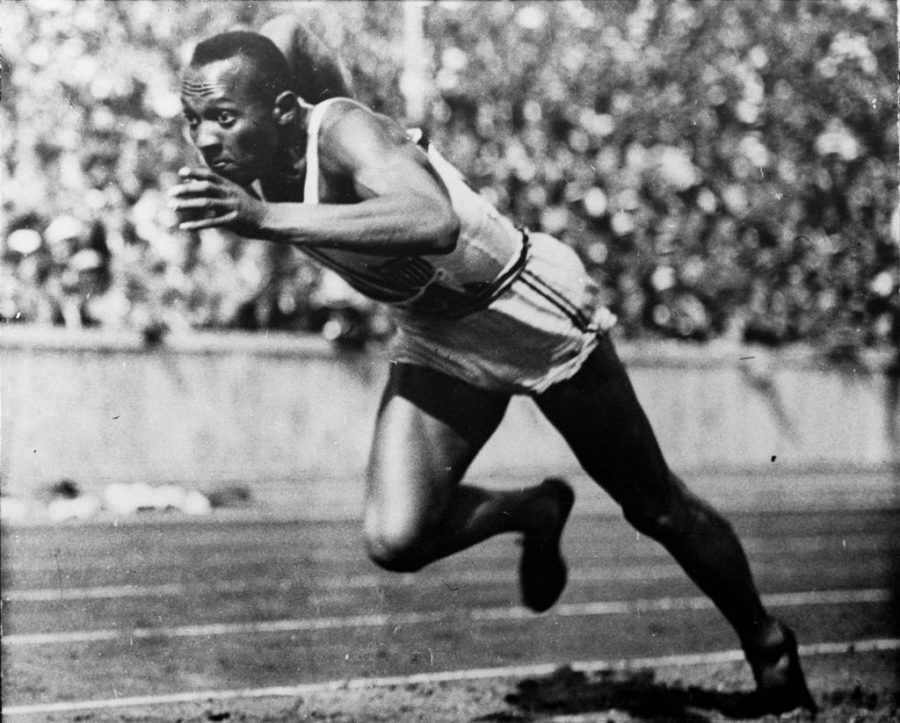Race: The Triumphs and Trials of Jesse Owens
February 13, 2020
Four world records in 45 minutes. Four Olympic gold medals that did not “belong” to him. Jesse Owens — the man, the legend — enjoyed defying the oddsmakers. Nearly every voice in his ear was telling him not to… but he did it anyway.
Jesse Owens was one of the first African American men to show the world that he could do anything, no matter what stood in his way.
Eighty-five years ago, a 21-year-old man Owens took the sports world by storm when he accomplished the impossible. During a Big Ten track meet, he tied the world record in the 100-yard dash and then set the world record in the long jump, the 220-yard dash and the 220 low hurdles. All in 45 minutes.
His athletic accomplishments did not end there. Just a year later, the 1936 Olympic Games took place in Berlin. Adolf Hitler was in his 3rd year as German dictator and was eager to have his Aryan supremacy ideals realized in the Olympics that year… until Jesse Owens interfered.
Jesse Owens represented the United States, despite many advising him not to. He chose to make the trip anyway and eventually, Owens and a handful of other African Americans ended up vital to American success in the games. They defied Hitler and guided the United States to 11 gold medals, including 4 from Owens alone. His performance landed him 2 Olympic records, including a broad jump record that would stand for 25 years.
Luckily for many, Owens competed for his country in 1936; however, this would prove his last competition. He announced retirement at the conclusion of the games. When he arrived home, he was not met with applause, as many champions often were. His own president, Franklin D. Roosevelt, failed to congratulate him at the White House.
Despite retiring from formal races, Owens decided to use his athleticism to race cars and animals and even to compete in basketball games with the Globetrotters. In time, he settled into a career that did not rely on his athleticism, but his drive and intellect. He toured the country on speaking engagements.
Jesse Owen’s impact as a civil rights influencer began before many others, allowing him to set a foundation of defiance. Jesse’s actions in the 1936 Olympics allowed him to prove one of the most racist world leaders of all time wrong.
Despite his success on the track, he was a well-known “pack a day” smoker for much of his life. As a result, he passed away in 1980 from lung cancer at the age of 66 years old. Luckily Owens lived to see much of his impact on the grandest stage of sports. By 1980, the major sports leagues of the country such as the NBA, NFL, MLB, and others were integrated and on track to fully accepting athletes of all colors.
In 2016 Jesse’s career was depicted in the film ‘Race.” His hardships experienced throughout his life were the focus of the film.
Jesse’s life has long been celebrated, whether it be by many or few his work never went unnoticed and continues to be appreciated in today’s world.



